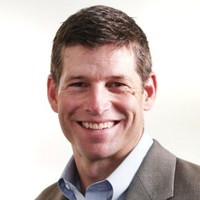This is an interview with Christopher Dunkin, General Manager of Portable Air.
Where were you at 22, and how did you get to where you are today?

At age 22, I was finishing my last year of college, working two jobs and playing my final year of college soccer. At that point, I had no idea what I wanted to do for a career. I knew that I enjoyed, and was good at, physical labor, but I did not think that would ever provide me the type of income I would need to build wealth and provide for the family I knew I wanted in the future. After months of interviews for various entry level office jobs in industries ranging from insurance to international non-profits, I was not feeling inspired to pursue any of the positions I was offered. Looking back, I consider myself fortunate that I was able to value the instinct I had to resist my increasing desire for security and wait on some measure of passion to inform my next step. The next step came in the form of a request to help a small business with a job they had won which was much bigger than any they had done before. The request was easy for me to say yes to because it entailed a lot of physical labor, paid very well and was only for one night. What I had the great fortune to participate in that night was a small business making a huge leap into the next level of their growth and development. I had the opportunity to work shoulder to shoulder with the owners of the business and witness first hand what leadership looked like on the ground and in real time. Their commitment and personal stake in the outcome of this job was evident in every decision they made. However, the most encouraging thing to me, and something I had not considered as a possibility for an owner or business professional up to this point, was that the owners possessed no special skills or knowledge specific to the job they were doing. They knew the business and what they were supposed to do, but they relied on their employees and asked for help to complete the job. It was a clear example of what I’ve come to believe all businesses do. Business brings people together that otherwise would not associate with one another to achieve a common goal. In this way, business was similar to the sports teams I had so much experience with. All at once, I felt the pressure of finding the perfect career that fit my skill set diminish significantly. I was filled with confidence with the experience of sports teams I had been on and all the manual labor jobs I had done that I could bring value to an organization. And most significantly, that it was okay to be successful and still ask for help. In fact, that night of work demonstrated for me how, by the owners asking for help, the team stepped up and their overall engagement and satisfaction was evident. A few months later, after volunteering to help with a few more jobs, I began working full-time for that business. Within a year, I had bought in as an owner. It’s been nearly 30 years since that experience, but I use what I learned that night everyday in the position I have now. I’m quick to tell the people I work with that asking for help is a sign of maturity. The truth is that I say it, not only because I want them to believe it, but that I continually need to be reminded myself.
When did you really decide to “take ownership” of your career? What inspired you to pursue your passion?
I took ownership of my career when I realized that focusing exclusively on myself and what I wanted was too small to motivate me in the long run. I needed a goal much bigger than myself to stay motivated and achieve what was otherwise considered impossible. I took a position in a company with the express goal of helping a family business transition from one generation to the next. I spent the first half of my time at that company focusing on what I needed to know, understand, possess and embody from the current leadership to demonstrate to the second generation that I would not let anything slip through the cracks during the transition. My entire focus was on what I needed to get better at and where I was falling short. It was not a fun position to be in. I realized that my focus was too small. I was entirely focused on replicating what was already in place and completely neglecting the transition component of what I was tasked with. Stewardship became my new goal. This took a lot of the pressure off of what I needed to do and accomplish personally and instead, put the emphasis on what was best for the business considering what the second generation wanted and needed. I immediately became more clear on what I was committed to each day and my conversations with both parties became much more productive. Our progress toward the goal increased significantly. This experience served as a reminder that I am passionate about pursuing goals beyond those focused only on me.
How do you measure success in your role? How do you know you’re succeeding?
I measure my success against specific goals divvied up between four different perspectives on our business: Financial, Customer, Internal Process and People. The financial perspective goals are based on revenue, profitability and ROI. The customer perspective goals are based on our theory of how we deliver value to our customers. Our internal process goals are based on how efficiently and effectively we execute the commitments we make to each other within our business. Our people goals are based on the personal and professional development of our employees. This measurement approach is helpful because it reinforces the critical importance of the people in our business. The financial and customer measurement goals are lagging indicators and the internal process and people goals are leading indicators. The most valuable use of my time is always the time I spend on our internal process goals and our people goals. Making improvements in both these perspectives will naturally lead to improvement in the customer and financial perspective goals.






